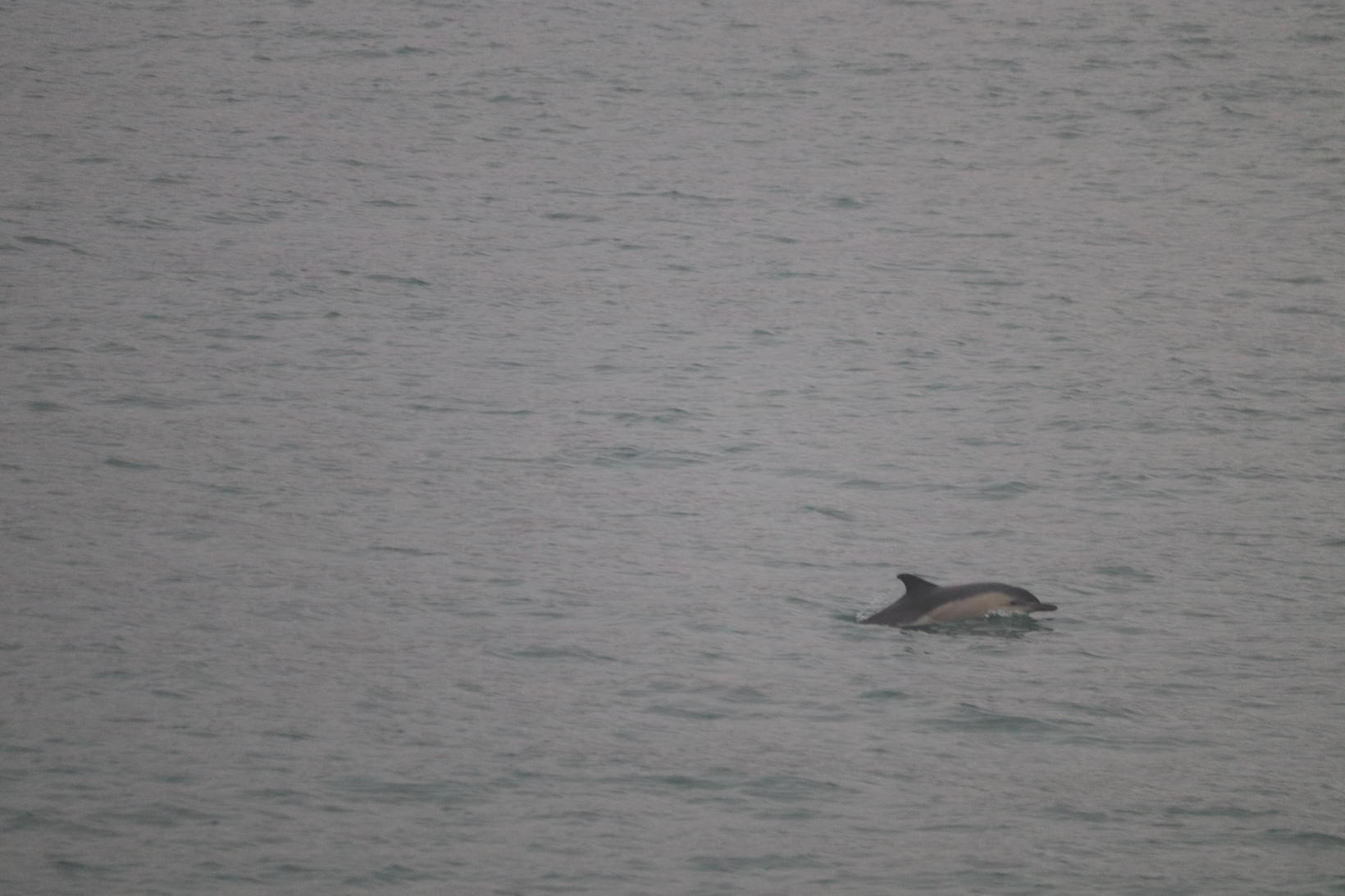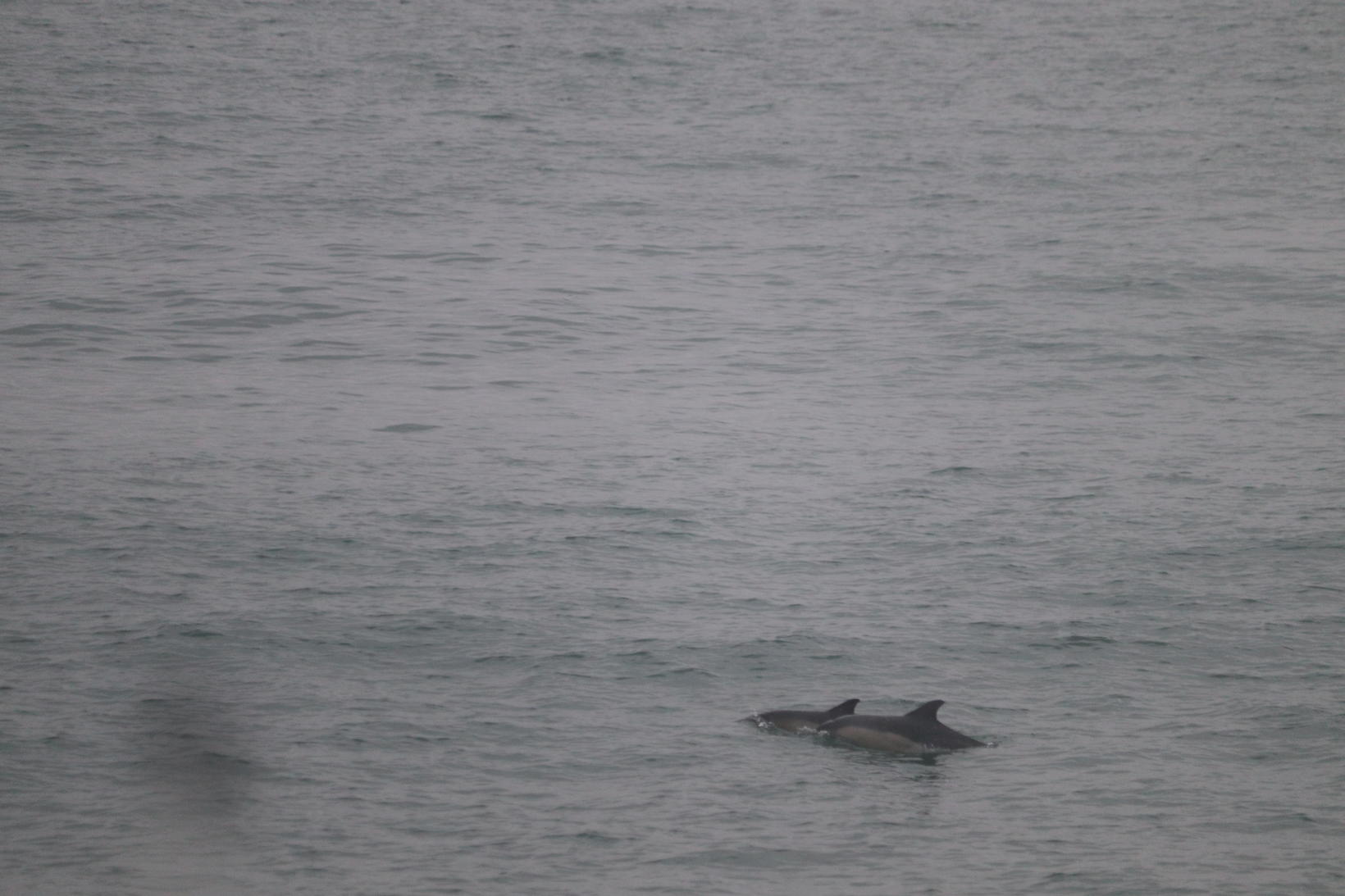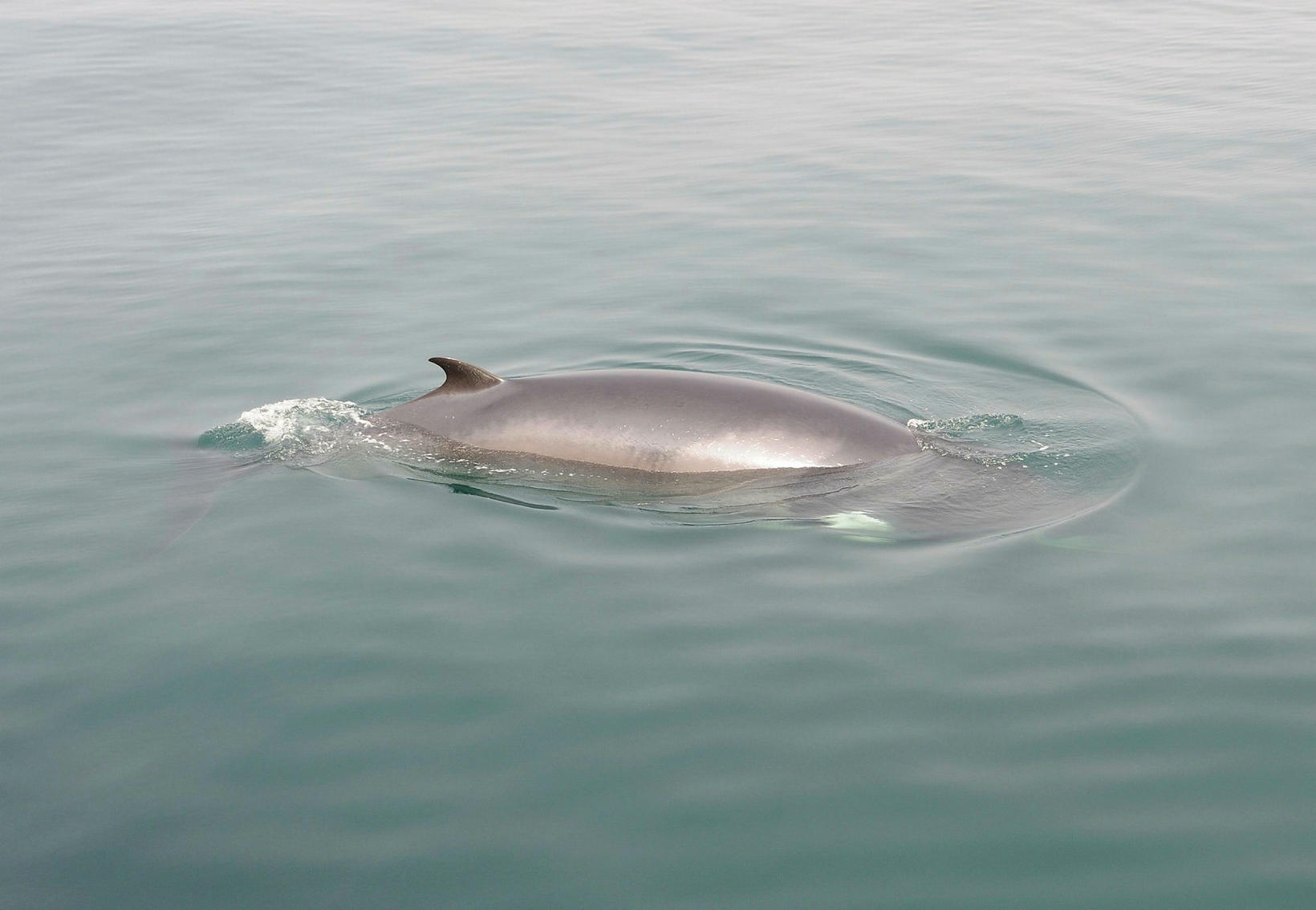A new species of dolphin seen in Faxaflói
The dolphin species common dolphin ((lat. delphinus delphis) was seen in Faxaflói yesterday, but usually the species does not venture this far north. Photo/Alice Lehir
The common dolphin species (lat. delphinus delphis) was seen on Monday in Faxaflói during one of the excursions of the whale watching company Special Tours .
Edda Elísabet Magnúsdóttir, lecturer in biology at the University of Hí, considers it a sign that exotic species are looking for new homes due to climate change.
Exciting to see a new species
Jonathan Rempel, guide and curator at the whale museum Whales of Iceland, says it was exciting to see a completely new species during the excursion on Monday. Special Tours keeps a good record of the species that have been seen in the last 10-12 years and the common dolphin was not among them. Rempel says that there were two common dolphins on the trip and that they seemed to be in good physical condition.
"However, it is often the case that when species that are almost never seen show up, there is often a problem on the way, animals may be sick or unable to find their way back. For example, in 2022, a striped dolphin came here, which had never been seen here before, but two animals ran ashore and died," he says.
Thinks first about climate change
Edda Elísabet Magnúsdóttir, a biologist, says she first thought of climate change when she heard the news. She recalls that the same species was seen in Eyjafjörður last summer and stayed there for quite some time.
She says that the distribution of these whales reaches all the way north of the British Isles, so they are not that far from their homes, but it will be interesting when such arrivals become more frequent. Magnúsdóttir says this goes hand in hand with what is happening in the sea, the temperature is rising because of the heat it has been absorbing for a long time.
"We see it, for example, in changes in fish migration and where fish are choosing to spawn, all things that are highly dependent on sea temperature," she says.
Following the food
She says that in the future she expects to see a change in the distribution of the species that prey on the fish. In this case, the dolphins are therefore chasing food. It can happen because of a lack of food "back home" or because food is more accessible in these areas.
If these animals are in very cold seas for a very long time, it could start to affect their health. However, they have to withstand quite a wide range of temperatures. It is therefore important when they have arrived in such northern areas that they find enough food, and there should be plenty of it in Faxaflói.
She says the dolphins are not equipped to stay in very cold seas for a long time, like cold sea dolphins, which are denser and have shorter limbs to reduce heat loss. They could therefore run into problems if a prolonged cold spell comes with the cooling of the surface water.
The number of Minke whales in Icelandic waters has been decreasing and they are seen go further north, to Svalbard and Jan Mayen. Photo/Sigurður Ægisson
Minke whale is decreasing in number and moving north
Magnúsdóttir thinks it will be interesting to see what comes out of the Norwegian Oceanographic Survey's whale count this summer.
"We can see that the number of minke whales has decreased significantly here in the last decades, which are now feeding in areas further north than Iceland. Minke whale has become more and more common in Jan Mayen and Svalbard. We are therefore undoubtedly seeing a shift in the distribution of species."
Along with the warming of the sea, there may be a cooling of the sea in certain areas south of the country due to the melting of the Greenland ice sheet and the effects it can have on the Gulf Stream.
"Species such as dolphins, turtles and sharks that use the Gulf Stream to travel may be affected by these changes."
Magnúsdóttir believes that the animals that are currently traveling are on an exploration mission to Iceland. Their knowledge can then be passed on to younger generations and cause relief to become more common by Iceland's shores.









/frimg/1/48/27/1482789.jpg)
